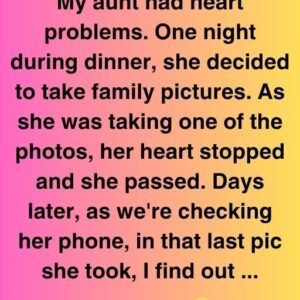n a world that often feels divided, rushed, and increasingly impersonal, kindness can seem like a luxury we can’t afford. We’re busy, stressed, and focused on our own challenges. Yet beneath the surface of our daily struggles lies a fundamental truth that these ten remarkable stories illuminate: kindness isn’t just a nice gesture—it’s a transformative force that can change lives, including our own.
The stories you’re about to read aren’t fairy tales or feel-good fiction. They’re real accounts from real people who discovered that compassion, even in its smallest forms, has the power to heal wounds, build bridges, and remind us of our shared humanity. Each narrative offers a window into moments when someone chose empathy over indifference, understanding over judgment, and connection over isolation.
The Hidden Gift: When Love Comes Too Late
Maria’s Story
When Maria turned eighteen, her grandmother presented her with a handmade red cardigan. The wool was scratchy, the color outdated, and the style completely unfashionable by teenage standards. “Thanks,” Maria said flatly, barely looking up from her phone as she accepted the gift that represented hours of her grandmother’s careful work.
Her grandmother’s eyes held a flicker of disappointment, but she simply smiled and said, “I hope it brings you warmth, mija.” Three weeks later, she passed away suddenly from a heart attack.
The cardigan sat untouched in Maria’s closet for years, a silent reminder of guilt and regret. Through college, career changes, marriage, and motherhood, it remained folded in the same corner where she’d first placed it. It wasn’t until her fifteen-year-old daughter, Sofia, was rummaging through old clothes for a vintage-themed school dance that the cardigan’s true story emerged.
“Mom, this is actually kind of cool,” Sofia said, slipping her arms through the sleeves. “It’s very retro-chic.” As she adjusted the fit, her hand brushed against something in the pocket—a small paper envelope, yellowed with age.
Inside were two concert tickets to see the Backstreet Boys, dated for a show just one month after her grandmother’s death. The tickets were for premium seats, a significant expense for a woman living on a fixed income. On the back of one ticket, in her grandmother’s careful handwriting, were the words: “Para Maria y su mejor amiga – que disfruten la música” (For Maria and her best friend – enjoy the music).
Maria’s grandmother had remembered every detail: how Maria had plastered her bedroom walls with posters of the band, how she’d saved allowance money for months hoping to afford tickets, how she’d begged her parents to let her go with her best friend Jessica. Despite her limited resources, her grandmother had secretly purchased the tickets, hiding them in the very gift Maria had dismissed so carelessly.
The weight of this discovery was crushing. Maria sobbed for hours, holding those tickets and remembering her grandmother’s face when she’d barely acknowledged the cardigan. But within that grief came a profound realization about the nature of unconditional love and the importance of recognizing kindness, even when it doesn’t come in the package we expect.
Today, Maria wears that red cardigan regularly. It’s become her comfort garment during difficult days, her reminder to pause and appreciate gestures of love, no matter how they’re presented. She’s taught Sofia the story behind it, ensuring that the lesson of her grandmother’s hidden kindness lives on.
“That cardigan taught me that love often comes disguised as ordinary things,” Maria reflects. “My grandmother knew I might not appreciate it at first, but she also knew that someday I’d understand. She was playing the long game with love, and even though I failed her in that moment, her kindness still found its way to me when I needed it most.”
The Grocery Store Angel
Robert’s Encounter
Robert Martinez was having the kind of day where nothing seemed to go right. His car had broken down that morning, forcing him to take two buses to reach the grocery store. His grandson Tommy was coming for their weekly dinner—a tradition they’d maintained since Robert’s wife passed away two years earlier—and he needed to pick up ingredients for Tommy’s favorite meal: homemade meatballs and spaghetti.
At the checkout counter, Robert’s heart sank as he watched the total climb higher than expected. Inflation had hit harder than he’d realized, and his fixed income stretched thinner each month. He was $4.73 short, a small amount that might as well have been a hundred dollars when you’re counting every penny.
The cashier, a young woman who looked barely out of high school, tapped her fingers impatiently. Behind Robert, a line of customers began to shift restlessly. He could hear the sighs, see the eye rolls, feel the collective frustration building behind him.
“I’m sorry,” Robert said quietly, his face flushing with embarrassment. “Let me put back the ground beef. We can have pasta with just sauce tonight.”
That’s when Sarah, a working mother of two standing third in line, stepped forward. She was already running late to pick up her kids from daycare, already stressed about the pile of work waiting for her at home. But something in Robert’s defeated posture, in the gentle way he was trying to make this disappointment okay, moved her to act.
“I’ve got it,” she said simply, handing the cashier a five-dollar bill. “Keep the change.”
Robert turned to look at her, his eyes bright with unshed tears. “You don’t understand,” he said. “This isn’t just dinner. This is my grandson’s favorite meal. We cook together every Thursday. It’s all I have left of…” He paused, composing himself. “Thank you. You saved my dinner with my grandson.”
Sarah smiled, her earlier frustration completely forgotten. “I have kids too. I understand.”
A week later, Sarah encountered Robert again at the same store. This time, he was with a bright-eyed eight-year-old boy who looked just like him. Both of them spotted her at the same time and broke into wide grins, giving her enthusiastic thumbs-ups that made her laugh out loud.
But the story doesn’t end there. That simple act of kindness created a ripple effect that neither Sarah nor Robert could have anticipated. Robert began carrying a small notebook where he recorded acts of kindness he witnessed or participated in. He started a tradition with Tommy where they would brainstorm ways to help others during their weekly dinners. Tommy, inspired by his grandfather’s stories, began volunteering at a local food bank.
Sarah, meanwhile, found herself more aware of opportunities to help others. She began keeping a few extra dollars in her pocket specifically for moments like these. Her own children, watching their mother’s example, started their own small kindnesses: helping elderly neighbors with groceries, sharing lunch with classmates who had forgotten theirs.
“That four dollars and seventy-three cents was nothing to me,” Sarah says now. “But for Robert, it was the difference between disappointment and joy, between a broken tradition and a cherished memory. I’ve learned that sometimes the smallest gestures have the biggest impact because they come at exactly the moment when someone needs to feel seen and valued.”
The Lesson in Assumptions
David’s Parking Lot Epiphany
David Chen prided himself on being organized, punctual, and respectful of rules. So when someone began regularly parking in his assigned spot at the law firm where he worked, he was more than just inconvenienced—he was personally offended. This was his space, clearly marked with his name, and someone was blatantly disregarding that fact.
The culprit drove a beat-up Honda Civic with a dented bumper and a broken taillight. David began leaving increasingly stern notes on the windshield: “This is a reserved space. Please respect assigned parking.” Then, “Second notice: This space is not available for general use.” Finally, “If you continue to park here, I will have your car towed.”
The notes seemed to have no effect. Every morning, David would arrive to find the Honda in his spot, forcing him to park three blocks away and walk in his expensive suits and leather shoes. His frustration mounted daily.
On a particularly rainy Monday morning, David decided he’d had enough. He arrived early, strategically placed traffic cones around his space, and waited in his car for the Honda to arrive. When it did, the driver couldn’t park and was forced to get out and move the cones.
That’s when David saw him clearly for the first time: a man about his own age, struggling to walk with a pronounced limp, using a cane for support. The man moved slowly, painfully, each step clearly requiring significant effort. David watched him remove the cones one by one, the simple task taking several minutes in the rain.
Feeling suddenly foolish, David rolled down his window. “Excuse me,” he called out. “I’m sorry, but that’s actually my assigned space.”
The man looked up, rain dripping from his hair. “Oh God, I’m so sorry. I had no idea it was assigned to someone specific. I’ve been parking here because…” He gestured toward the building. “My usual spot by the entrance is under renovation, and I can’t walk very far since my surgery. I didn’t realize I was taking someone’s designated space.”
David felt his face burn with shame. Here he’d been, getting increasingly angry at someone who was simply trying to manage a difficult situation. The man wasn’t being disrespectful or entitled—he was doing his best to cope with a physical limitation David hadn’t even considered.
“Please,” David said, getting out of his car. “Take the spot. I can walk the extra distance—you need it more than I do.”
“I can’t ask you to do that,” the man protested. “This is your space. I’ll figure something else out.”
But David was already removing the cones. “I insist. And I’m sorry about the notes. I should have talked to you directly instead of making assumptions.”
The man’s relief was visible. “Thank you. Really. This means more than you know. I’m Michael, by the way. I work in accounting on the third floor.”
“David. Corporate law on seven. And Michael? The spot is yours for as long as you need it.”
That encounter changed both of their lives in unexpected ways. Michael, grateful for David’s understanding, began stopping by David’s office occasionally to chat. Their conversations revealed that they had more in common than just workplace proximity—both were struggling with elderly parents, both enjoyed hiking (something Michael missed terribly since his injury), and both were trying to navigate demanding careers while maintaining work-life balance.
Their friendship deepened over months of coffee conversations and shared lunches. When Michael’s physical therapy progressed to the point where he could handle short walks, David began joining him for brief strolls around the building during lunch breaks. When David’s father was diagnosed with dementia, Michael provided emotional support and practical advice based on his own experience caring for aging parents.
“That parking spot taught me one of the most important lessons of my adult life,” David reflects. “I learned that my first assumption about a situation is often wrong, and that taking the time to understand someone’s circumstances can transform conflict into connection. Now, whenever I feel frustrated with someone’s behavior, I try to pause and consider what I might not be seeing.”
The two men still work in the same building, still share that parking arrangement, and have become close friends. They’ve started a small support group for employees dealing with elderly parent care, and they regularly volunteer together at a local rehabilitation center, helping others who are learning to navigate physical challenges.
The Prank That Became a Lifeline
Jake’s Unexpected Friendship
What began as teenage mischief evolved into one of the most meaningful relationships of Jake Morrison’s life, though it took him years to understand the full impact of his actions.
At sixteen, Jake was the kind of teenager who found humor in causing minor chaos. He and his friends would spend Friday evenings making prank calls, targeting random numbers from the phone book. Their favorite target was Harold Finch, an elderly man who lived alone and had the misfortune of being listed in the directory. Jake would call pretending to be pizza delivery, a telemarketer, or sometimes just make random noises before hanging up.
Harold’s responses were always the same: gruff, irritated, and increasingly creative in his descriptions of what he’d like to do to prank callers. This only encouraged Jake, who saw Harold’s reactions as entertainment rather than considering the actual impact of his calls.
One Friday evening, Jake dialed Harold’s number as usual, but this time something was different. Instead of launching into his typical fake pizza delivery routine, Jake found himself just listening to Harold’s “Hello?” on the other end. Maybe he was tired, maybe something in Harold’s voice struck him differently, but Jake remained silent.
After a moment, Harold said something that changed everything: “Well, whoever this is, I’m glad you called. No one else ever does.”
The loneliness in that simple statement hit Jake like a physical blow. This wasn’t just some grumpy old man—this was someone who was genuinely isolated, so starved for human connection that even prank calls represented contact with the outside world.
Jake hung up, but he couldn’t shake what he’d heard. The next Friday, instead of making his usual prank call, he called Harold and simply said, “Hi, Mr. Finch. I was wondering how you’re doing.”
There was a long pause. Then Harold said, “Who is this?”
“Just someone who wanted to talk,” Jake replied. “Is that okay?”
What followed was the first real conversation Jake had ever had with Harold. He learned that Harold was eighty-three, a widower who had lost his wife of fifty-seven years just eight months earlier. He had no children, few remaining friends, and spent most of his days watching old movies and reading newspapers from cover to cover just to pass time.
Jake began calling every Friday, then twice a week, then whenever he had free time. Harold, who had initially been suspicious of his young caller’s motives, gradually opened up. He shared stories from his service in the Korean War, his forty-year career as a high school mathematics teacher, and his deep love for his late wife, Eleanor.
In return, Harold became Jake’s unofficial life counselor. When Jake was struggling with college applications, Harold helped him write essays. When Jake’s first serious girlfriend broke up with him, Harold listened to hours of teenage heartbreak and offered wisdom that only comes from having lived through love, loss, and everything in between. When Jake was deciding between different career paths, Harold helped him think through the pros and cons with the patience of someone who genuinely cared about the outcome.
“Call me Grandpa,” Harold said one day, about six months into their friendship. “I never had grandchildren of my own, and you’ve become more family to me than most of my actual relatives.”
For three years, Jake and Harold maintained their unique relationship. Jake would visit Harold’s apartment occasionally, helping with grocery shopping or small repairs. Harold attended Jake’s high school graduation, beaming with pride as if Jake were his own grandson.
Then, on a Tuesday morning during Jake’s sophomore year of college, Jake’s phone rang. It wasn’t Harold—it was a nurse from the local hospital.
“Mr. Finch passed away peacefully in his sleep last night,” she said gently. “He left specific instructions that we should call you. He also left something for you.”
Harold had bequeathed Jake his most prized possession: an old rotary phone that had been in his family for decades. When Jake examined it, he found that Harold had programmed just one number into its memory: Jake’s cell phone.
Attached to the phone was a letter in Harold’s careful handwriting:
Dear Jake,
You probably think you know how this story began—with prank calls and a lonely old man. But I want you to know the whole truth. Those Friday evening calls became the highlight of my week long before you started actually talking to me. Even when you were pretending to deliver pizza or sell insurance, I could hear the laughter in your voice, the joy of being young and silly. In a house that had become too quiet after Eleanor died, those calls reminded me that the world was still full of life and energy.
When you finally started talking to me as yourself, you gave me something I thought I’d lost forever: a sense of purpose. Being your “Grandpa” made me feel needed again, valuable again. You saved me from a loneliness that was killing me as surely as any disease.
This phone connected us across generations and circumstances. I hope it reminds you that connection—real, genuine human connection—is the most precious gift we can give or receive. Keep calling people, Jake. Keep reaching out. The world needs more people who understand the power of simply caring enough to pick up the phone.
With all my love and gratitude, Grandpa Harold
Jake still has that phone, displayed prominently in his apartment. He’s now a social worker specializing in elderly care, a career path directly inspired by his relationship with Harold. He’s implemented programs that connect young volunteers with isolated seniors, facilitating the kind of intergenerational friendship that transformed his own life.
“Harold taught me that sometimes the greatest act of kindness is simply showing up—or in our case, calling up,” Jake says. “He also taught me that it’s never too late to turn a mistake into something meaningful. Those prank calls could have remained just stupid teenage behavior, but Harold saw past that to the person I could become. He changed my life by believing in me before I believed in myself.”
The Mistaken Delivery That Found Its Purpose
Emma’s Discovery
For three weeks, Emma Rodriguez had been receiving food deliveries she hadn’t ordered. At first, she assumed it was a mistake—apps glitch, addresses get mixed up, things happen. When she called the delivery service, they seemed genuinely confused but couldn’t track down the actual customer. “Keep the food,” they said. “We can’t charge someone for something they didn’t receive.”
Emma felt slightly guilty about the free meals, but she was a graduate student working two part-time jobs to make ends meet. The unexpected dinners were a welcome relief from her usual diet of ramen noodles and peanut butter sandwiches. She told herself she’d figure out where the food was supposed to go eventually.
The mystery deepened when she realized the orders followed a pattern: they arrived every Tuesday and Friday at exactly 6:30 PM, always from the same Chinese restaurant, always the same meal—sweet and sour chicken with fried rice, wonton soup, and a side of steamed broccoli. Someone, somewhere, was very consistent in their dining preferences.
It wasn’t until Emma encountered Mr. Chen wandering the hallway of her apartment building on a Friday evening that the pieces began falling into place. She’d seen him before—a slight, elderly man who lived somewhere on her floor—but they’d never spoken beyond polite nods in passing.
Tonight, however, he seemed confused and distressed, walking slowly from door to door, checking apartment numbers with a furrowed brow. He was dressed neatly in a pressed shirt and cardigan, as if he were expecting company.
“Excuse me,” Emma said gently. “Are you looking for something?”
Mr. Chen looked up, his eyes showing a mixture of embarrassment and confusion. “My food,” he said in accented English. “My daughter, she orders for me. Tuesday and Friday, always comes at six-thirty. But tonight…” He gestured helplessly at the empty hallway.
Emma’s heart sank as she realized what had been happening. “Mr. Chen, what apartment number do you live in?”
“4B,” he said.
“I live in 4D,” Emma said slowly. “I think your food has been coming to my door by mistake.”
His face brightened with relief, then clouded with worry. “But I wait for my dinner. My daughter, she pays online. She makes sure I eat good food. She lives in California, very busy with work, but she takes care of me this way.”
Emma understood immediately. Mr. Chen’s daughter had set up automatic food delivery for her father, but there was a glitch in the system—probably just a single digit difference in the apartment number field. For three weeks, Mr. Chen had been waiting for meals that never arrived, likely surviving on whatever he could find in his refrigerator or pantry.
“Mr. Chen, I’ve been receiving your food,” Emma said. “I’m so sorry. I should have figured this out sooner. Are you hungry now?”
He nodded, looking embarrassed. “I don’t like to bother anyone.”
“It’s no bother at all. Come with me.”
Emma’s latest delivery had arrived just twenty minutes earlier and was still warm. She invited Mr. Chen into her small studio apartment, quickly clearing space at her tiny dining table. As she served him his sweet and sour chicken—his sweet and sour chicken—she noticed how carefully he ate, how grateful he seemed for the simple act of having a proper meal.
“This is very kind,” Mr. Chen said between bites. “My daughter, she worries about me eating alone every night. She says food tastes better with company.”
Emma found herself genuinely enjoying his presence. Mr. Chen had been a mathematics professor at the local university before retiring. He told her about his research, his students, and his late wife, who had been an accomplished pianist. In return, Emma shared her own studies in social work, her thesis on elderly care systems, and her dreams of working with underserved populations.
When the meal was finished, Emma helped Mr. Chen call the delivery service to correct his address. But as he prepared to return to his own apartment, she found herself reluctant to see him go.
“Mr. Chen,” she said impulsively, “would you like to have dinner together next Tuesday? I could order from somewhere else, and we could both eat at the same time?”
His face lit up. “You would like that? To eat with an old man who talks too much about mathematics?”
Emma laughed. “I would love that. And you don’t talk too much—you tell great stories.”
What began as a twice-weekly dinner arrangement evolved into a genuine friendship that enriched both their lives in unexpected ways. Emma discovered that Mr. Chen was brilliant, funny, and incredibly kind. He helped her with the statistical analysis portion of her thesis, patiently explaining concepts that had been giving her trouble for months. He also became a source of wisdom and perspective, offering insights that only come from having lived through decades of challenges and changes.
For Mr. Chen, Emma’s companionship provided something his daughter’s well-intentioned food deliveries couldn’t: genuine human connection. He began looking forward to their dinners as the highlight of his week. Emma introduced him to foods from her Mexican heritage, while he taught her to appreciate different types of tea and shared family recipes his wife had perfected over the years.
Their friendship also sparked practical changes. Emma helped Mr. Chen set up video calls with his daughter, improving their long-distance relationship. She connected him with a local senior center where he began volunteering as a math tutor, finding new purpose in helping struggling students. Mr. Chen, in turn, introduced Emma to other elderly residents in the building, several of whom became part of their extended dinner circle.
“That mistaken delivery was the best mistake that ever happened to me,” Emma reflects. “I gained a friend, a mentor, and a completely new perspective on aging and community. Mr. Chen taught me that loneliness isn’t solved by just making sure someone has food—it’s solved by making sure they have connection. His daughter was taking care of his body, but what he really needed was someone to take care of his spirit.”
Emma has since completed her degree and works for a non-profit organization that addresses social isolation among elderly populations. Mr. Chen, now eighty-five, continues to be one of her closest friends and frequently speaks at the workshops she organizes about the importance of intergenerational relationships.
Small Gestures, Lasting Impact
As these stories demonstrate, kindness isn’t about grand gestures or heroic acts. It’s about recognition—seeing the person behind the situation, understanding that everyone is fighting battles we know nothing about, and choosing compassion even when it’s not convenient or expected.
The common thread in all these narratives is the transformative power of human connection. Whether it’s a grandmother’s hidden gift of love, a stranger covering a grocery bill, a coworker sharing a parking space, a teenager who chose conversation over cruelty, or a neighbor who turned mistaken deliveries into meaningful friendship, each story illustrates how small acts of kindness create ripple effects that extend far beyond the initial gesture.
These stories also reveal an important truth about assumptions. How often do we make snap judgments about people’s motivations, circumstances, or needs without taking the time to understand their full story? David assumed the person taking his parking space was inconsiderate, when in reality, they were dealing with a physical challenge. Jake’s prank calls seemed harmless to him but represented precious human contact to Harold. Emma could have simply returned the mistaken food deliveries to the restaurant, never discovering Mr. Chen’s isolation.
Perhaps most importantly, these stories show us that kindness benefits the giver as much as the receiver. Maria found peace and connection to her grandmother’s memory. Sarah discovered the joy of spontaneous generosity. David gained a meaningful friendship. Jake found his life’s calling. Emma built a relationship that enriched her personally and professionally. Each act of kindness created unexpected returns—not because kindness should be transactional, but because compassion naturally builds bridges that connect us to our community and our better selves.
The Science of Kindness
Research in psychology and neuroscience supports what these stories demonstrate experientially: acts of kindness create measurable benefits for both the giver and receiver. Studies have shown that performing kind acts triggers the release of oxytocin, sometimes called the “love hormone,” which can lower blood pressure, reduce inflammation, and promote overall cardiovascular health.
The phenomenon known as “helper’s high” describes the positive emotions people experience when helping others. This isn’t just a feel-good concept—brain imaging studies show that acts of kindness activate the same neural pathways associated with receiving rewards or experiencing pleasure. In essence, our brains are wired to find satisfaction in helping others.
Additionally, witnessing acts of kindness (even reading about them, as you’re doing now) can inspire what researchers call “moral elevation”—a specific emotion that motivates people to become better versions of themselves. This suggests that kindness is contagious in the best possible way, creating expanding circles of compassionate behavior.
Practical Kindness: How to Begin
The beauty of these stories is that they don’t require special skills, significant resources, or extraordinary circumstances. They simply require awareness and willingness to act. Here are some ways to incorporate the lessons from these stories into daily life:
Practice Assumption Checking: Before reacting to someone’s behavior with frustration or judgment, pause and consider what factors might be influencing their actions that you can’t see. Could there be a medical issue, a family crisis, or simply a misunderstanding at play?
Look for Small Opportunities: Kindness doesn’t require grand gestures. Covering someone’s coffee order, holding an elevator, offering to help carry something heavy, or simply making eye contact and smiling at someone who looks sad can make a significant difference.
Create Traditions of Caring: Like Robert and his grandson’s weekly dinners, or Emma and Mr. Chen’s twice-weekly meals, consider establishing regular touchpoints with people in your life who might benefit from consistent connection.
Be Present: In our digitally distracted world, one of the kindest things we can offer someone is our full attention. Put away phones, make eye contact, and truly listen when someone is talking to you.
Remember That Timing Matters: Sometimes the smallest gesture arrives at exactly the moment when someone needs it most. Trust that impulse to help, even if it seems insignificant to you.
The Ripple Effect Continues
Each of these ten stories represents just the beginning of their ripple effects. Maria now teaches her daughter about recognizing hidden kindness. Sarah’s children have learned to be aware of opportunities to help others. David and Michael’s friendship has supported dozens of other colleagues dealing with family care challenges. Jake has facilitated hundreds of connections between young people and isolated seniors. Emma’s work has created programming that addresses loneliness on a systemic level.
The individuals in these stories didn’t set out to change the world—they simply chose kindness in moments when they could have chosen indifference. Yet their combined impact extends to thousands of other lives through the connections, relationships, programs, and perspectives they’ve influenced.
Why Kindness Matters More Than Ever
In an era of increasing polarization, digital isolation, and global challenges, the need for human kindness has never been greater. These stories remind us that despite our differences in age, background, circumstance, or belief, we share fundamental needs for connection, recognition, and care.
Kindness is not weakness—it’s strength channeled toward building rather than tearing down. It’s not naivety—it’s wisdom that recognizes our interdependence. It’s not always easy, but it’s always worthwhile.
The ten individuals whose stories are shared here would be the first to tell you that they’re not saints or heroes. They’re ordinary people who made ordinary choices to be kind. But as their stories demonstrate, ordinary kindness can create extraordinary change.
A Challenge and an Invitation
As you finish reading these stories, consider this: somewhere in your daily life, there are opportunities for kindness waiting to be recognized. There’s someone who could benefit from a small gesture of care, understanding, or connection. There’s a moment when you can choose empathy over judgment, patience over frustration, or generosity over self-interest.
The challenge is to notice these opportunities. The invitation is to act on them.
You don’t need to wait for a dramatic situation or a perfect moment. Kindness lives in the ordinary interactions of daily life—in grocery store lines and office buildings, in parking lots and phone calls, in mistaken deliveries and chance encounters.
The person standing next to you might be waiting for a sign that someone cares. The colleague who seems difficult might be struggling with challenges you know nothing about. The elderly neighbor you pass in the hallway might be longing for a simple conversation.
These ten stories remind us that we have more power than we realize to make a positive difference in the world. It doesn’t require money, special skills, or significant time investment. It simply requires the willingness to see others as fully human, deserving of compassion, and worthy of our care.
In a world that often feels disconnected and divided, kindness remains our most powerful tool for building bridges, healing wounds, and creating the kind of community we all want to live in. The question isn’t whether opportunities for kindness exist—they’re everywhere, every day. The question is whether we’ll choose to see them and act on them.
The stories you’ve just read began with simple choices made by ordinary people. Your story of kindness begins the same way: with a choice, a moment, and the decision to care.
What will your story be?





